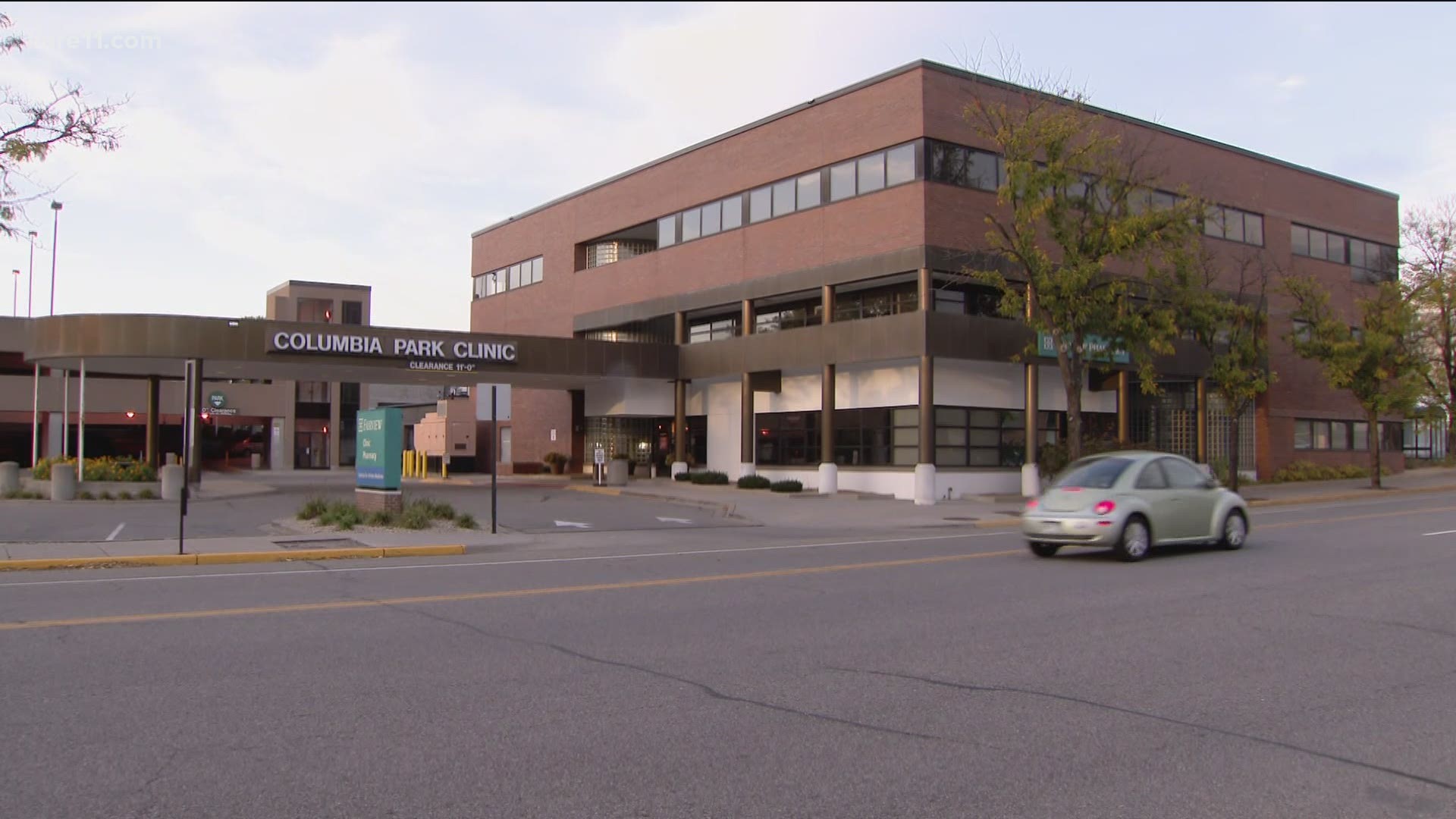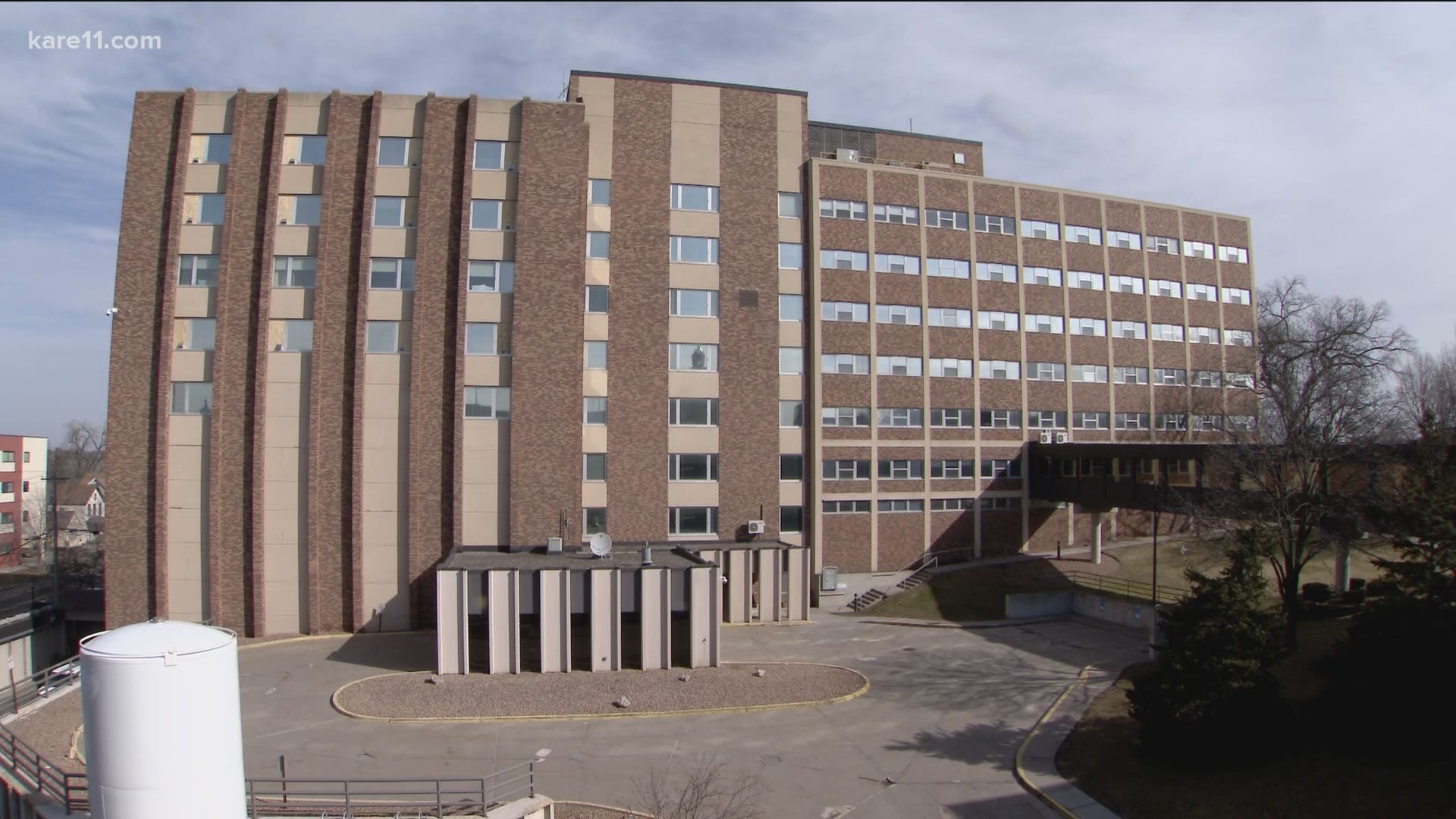ST PAUL, Minn. — Fairview Health Services announced some big changes Monday, including leasing Bethesda Hospital to help with homelessness in Ramsey County, and laying off 900 employees.
According to a press release issued on Monday, Fairview is making a number of changes to both Bethesda and St. Joseph's Hospital in the coming months, including:
- Leasing Bethesda Hospital to Ramsey County to address the homelessness crisis, pending approval by the Ramsey County Board this week. It will provide shelter this winter to people who are currently unsheltered in St. Paul. COVID-19 patients housed at Bethesda will be transferred to St. Joseph’s Hospital by the end of 2020, where COVID-19 care will be offered through 2021, or as long as the community needs it.
- St. Joseph's Hospital will be "reimagined as a community hub of health and wellness," as it currently does not meet the needs of the community, according to the release.
- Inpatient mental health beds will remain at St. Joseph's through 2021.
According to Fairview, 900 people will be laid off as a result of those and other changes implemented across the system. Employees are being encouraged to transition to any of the 1,200 open Fairview jobs "wherever possible."
The other changes announced Monday include:
- A new ambulatory care model focused on health "hubs," which will expand services across more than 40 clinics and primary care locations, repositioning specialty care through comprehensive ambulatory centers and fully leveraging new consumer demand for virtual care. To implement this, Fairview will consolidate 14 clinics in Minnesota and two in Wisconsin into its remaining clinic and primary care locations by the end of the year.
- Continuing conversion to single-occupancy hospital rooms.
- Expansion of connected, digital and virtual care.
- The integration of multiple record-keeping systems onto a single platform, to simplify the patient experience.
- Implementing EmPATH (Emergency Psychiatric Assessment, Treatment and Healing) units, which provide a living-room style environment for patients with urgent mental health needs, connecting them to the right outpatient resources and helping them avoid potentially traumatic emergency department visits and lengthy inpatient stays.
“The changes announced today are steps toward the transformation we need to meet the needs of our community now and into the future,” Hereford said in the release. “While we must address our financial challenges, ultimately this is about ensuring our future as a thriving and innovative health system; one dedicated to helping and healing patients. To improve health outcomes and experience for our patients, we must be willing to do things differently.”
Hereford called the layoffs "incredibly difficult decisions."
“They are among the hardest decisions an organization must make," he said. "They are also critical to our future as a health system if we intend to provide the kind of breakthrough care that improves health outcomes, addresses staggering health disparities, and truly addresses the healthcare affordability crisis in our nation.”
According to the Fairview website, the following primary care clinics will close starting Dec. 4:
- Columbia Heights
- Downtown St. Paul
- Farmington
- Grand Avenue
- Hiawatha
- Hugo (HealthEast - 14688 Everton Ave. N)
- Integrated Primary Care
- Lino Lakes
- Milaca
- Pine City
- Roseville
- Savage
- Xerxes (Bloomington Lake, Xerxes)
- Zimmerman
- Ellsworth (WI)
- Spring Valley (WI)
The following pharmacy locations will close starting Dec. 1:
- Columbia Heights
- Hiawatha (Minneapolis)
- Lino Lakes
- Milaca
- Rush City
- Zimmerman
The closures leave many questions for people Mary Granlund, a Columbia Heights resident who has relied on the Fairview clinic at 40th and Central for the past twenty years. The physicians, pharmacists and other staff members have helped her through a cancer diagnosis and the birth of two kids.
"This is a really accessible community clinic in an underserved area," Granlund said. "The next nearest one is 20-plus blocks up the road, in a much less accessible area. And who knows where our doctors are going to end up?"
The changes at Fairview, brought on partly because of financial challenges exacerbated by COVID-19, are another example of the pandemic's strain on health systems.
Reuben Moore, the CEO of Minnesota Community Care that caters to vulnerable populations in St. Paul and may fill gaps left by struggling larger systems, said the health care industry is incredibly challenged right now for a few reasons. One, fewer people are visiting the doctor for more routine visits due to fears of catching the virus, and two, lower reimbursement rates for poorer COVID-19 patients are leaving a shortfall.
"And you add those two pressures on a health system, it's bound to be too much for many," Moore said. "We're going to have to get more creative as a health care ecosystem, to increase access and availability of services to consumers, whether it be home visits, in-home care, video visits or telehealth."
Those will be some components of Fairview's community hub system, which it believes will be less redundant and more efficient. More on the changes Fairview Health Services is making can be found here.


